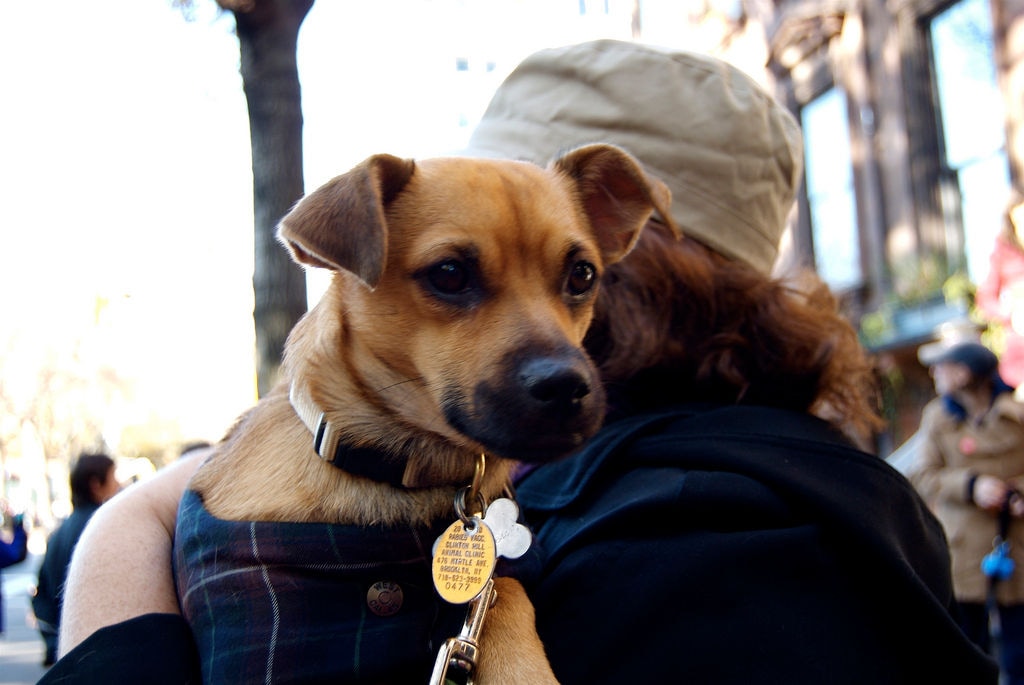It’s common to see a dog shivering playfully, but involuntary shaking may be a sign of something other than excitement. If you sense your dog’s shivering may not be normal, chances are there’s a problem that needs to be addressed. So how do you identify and correct the issue?
Here are some of the most common reasons for dog shivering and what to do about it:
- Pain
“If a dog is experiencing back, neck or abdominal pain, he may begin to shiver,” says Dr. Katie Grzyb, a veterinarian and the medical director at One Love Animal Hospital in Brooklyn, New York. “If he has joint issues such as arthritis, the limbs that are affected may experience some shaking.” California veterinarian Dr. Jeff Werber also notes that Addison’s disease, an endocrine disorder, may be responsible for excessive shivering, if your dog has it.What to do: If you observe your dog’s shivering is causing him pain or is harming him in some way, take quick action. “If your dog appears to be in pain when you attempt to play with him or pick him up, take him to a veterinary professional immediately,” advises Dr. Grzyb.
- Fear
One common cause of shivering for many dogs is fear. This feeling can come about in a dog for a number of reasons, notes Dr. Grzyb. Those fears include “worry about being separated from an owner, not being socialized or experiencing the aftereffects of previous abuse or abandonment.” Determining if fear is a factor in your dog’s shivering may just be a matter of observing him over time.What to do: To help assuage the fears of a scared dog, Dr. Grzyb recommends laying on the tender love and care. “Sitting with your pet, petting him gently and talking to him in a soft, soothing voice does a lot to help him feel more at ease and less afraid,” says Dr. Grzyb.
- Cold
An obvious reason your dog may be shivering is that he may just be a bit cold. If the weather is chilly outside and you’re feeling cold, expect the same from your dog. “Chances are your dog may be feeling cold too, and the shivering is just an indication of that,” says Dr. Werber.What to do
Skip playtime in the yard and opt instead for a short brisk walk or maybe even try out an indoor dog park to give your dog some exercise while still keeping him warm.
- Stress or Anxiety
Dogs may also shiver or shake due to anxiety or stress caused by loud noises. “There are many dogs who immediately get anxious in the midst of thunderstorms or when hearing the sound of fireworks,” says Dr. Werber.What to do
A simple home remedy may do the trick. “Put cotton balls in your dog’s ears when she’s exposed to loud sounds. This will help her to remain calm and feel that her environment is safe,” says Dr. Grzyb. “In some cases, you may even want to ask your vet if there are any natural stress-relieving medications or treatments you can safely give your pet.”
- Viruses
Although somewhat uncommon, distemper and other types of neurological conditions or viruses may cause dogs to shiver uncontrollably for extended periods of time.What to do
Contact your vet immediately if your dog’s shivering is excessive and prolonged. Have her thoroughly evaluated as soon as possible.
- Fractures
If when observing your dog you notice awkward movements, bloating or another sign of physical discomfort, you might be dealing with a physical issue. “Your dog may be suffering from a fracture or a condition such as a herniated disc,” warns Dr. Werber.What to do
In such cases, he says you should take your dog to the vet as soon as possible.
- Poisoning
Items that are toxic to dogs may cause shivering. Too much exposure to things such as chocolate, nicotine and xylitol should be avoided at all costs.What to do
If your dog has been exposed to toxins, keep him in a clean safe environment and avoid too much activity until you get to a vet.
Worried about dog anxiety? Check out Dog Anxiety 101: How to Help Your Pet Gain Confidence.
Tisha Berg is a mom, wife and web copywriter whose family shares their home with two cats, but wishes they had room for a dog. She writes about family lifestyle, parenting and travel on sites around the web, including Working Mother magazine, LifeScript and Mom Bloggers for Social Good.
* This article is for general informational purposes only. It is not intended nor implied to be providing medical advice and is not a substitute for such advice. The reader should always consult a health care provider concerning any medical condition or treatment plan. Neither Care.com nor the author assumes any responsibility or liability with respect to use of any information contained herein.
